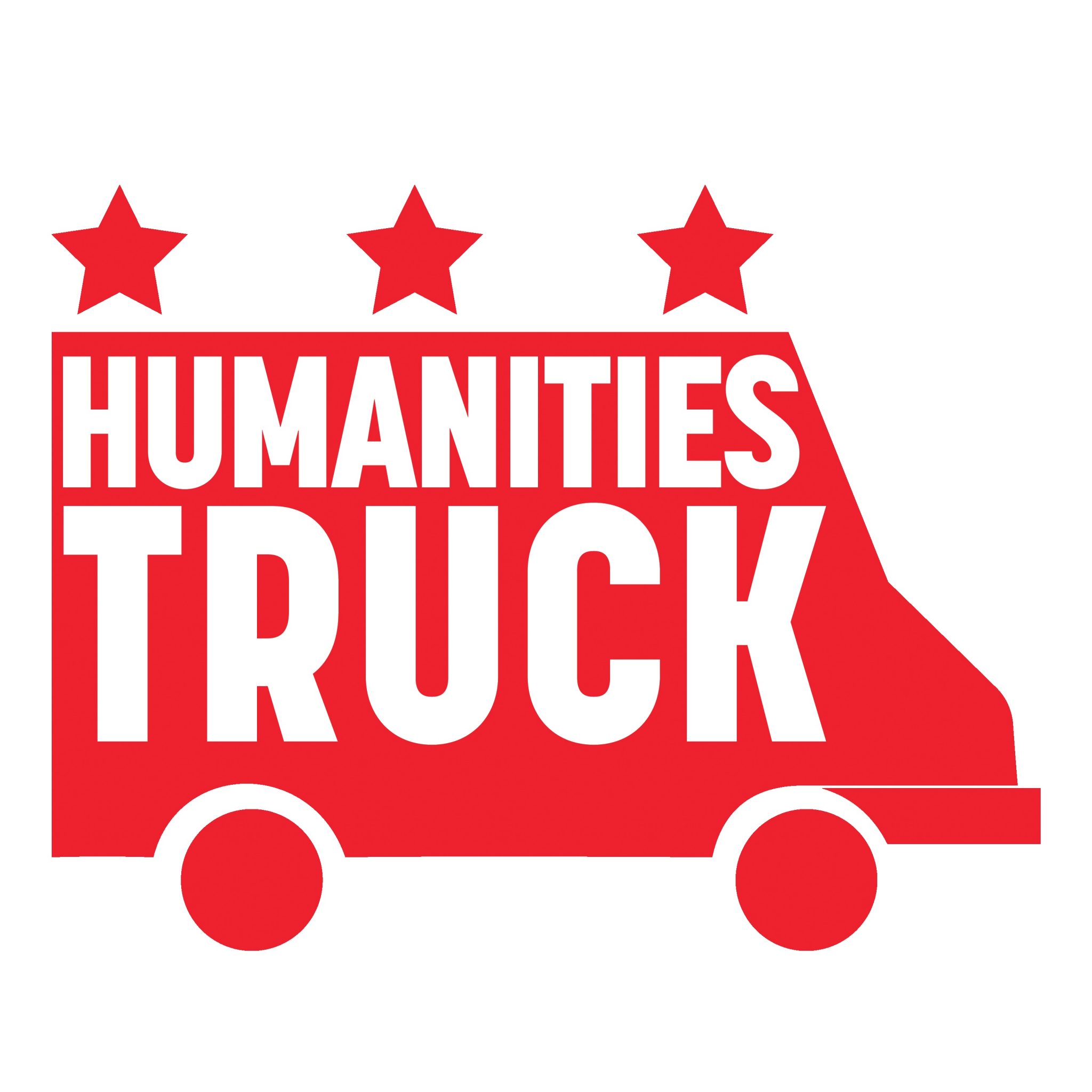The Humanities Truck is an interdisciplinary platform designed to facilitate collaborative community-based research, scholarship, and exhibitions. These collaborations take time and can take many different forms. The Humanities Truck Project Fellowship program provides a year for the Truck Fellows to be able to use the truck to develop these community relationships. Truck Fellows are expected to build a collaborative process that involves community partners in each phase of their projects, from research and documentation, to interpretation, and scholarly creation in the form of accessible exhibitions and performances. Throughout the year, Truck Fellows meet together to reflect upon the effective practices of community-engaged scholarship, and also to share the findings of their own projects.
The 2018-2019 Truck Fellows Projects share a theme “Dwelling and Mobility.” The truck is mobile, yet it has the capacity to create dwellings in places such parks, streets, parking lots, and sidewalks as it parks and sets up its portable tent, chairs, and tables and people gather to watch films, create art, and sit down and engage in deep reflections about their personal experiences. The initial projects focus on communities of people where the tensions between dwelling and mobility are especially poignant, including people experiencing homeless, recent immigrants to the region, residents in neighborhoods undergoing or threatened by significant transitions and dislocations.
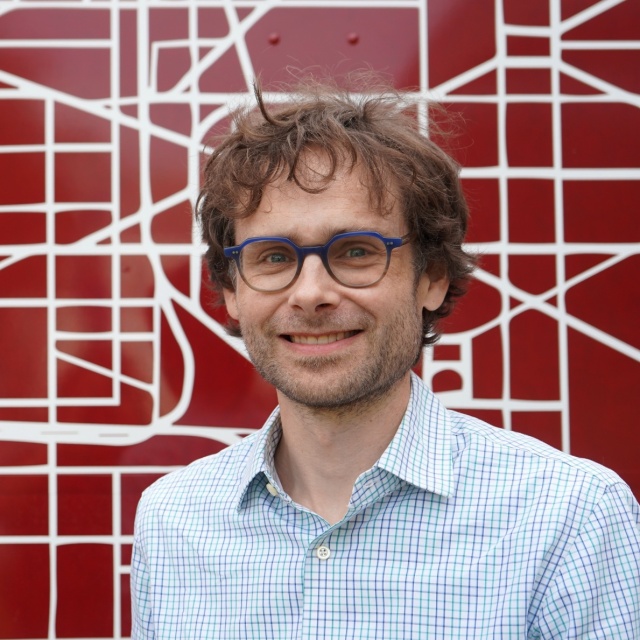
Benjamin Stokes
Benjamin Stokes is a civic media scholar and designer at American University with the Game Lab and in the School of Communication (SOC). His designs for cities have introduced neighbors through play, and retold local history with rebuilt payphones. Previously, Benjamin co-founded Games for Change, the movement hub for advancing social change with games. Benjamin’s publications include research on participatory design, neighborhood storytelling, and urban mapping by bicycle.
Learn more about Benjamin from his website and follow @bgstokes.
Neighborhood Storytelling System: New Ways to Circulate Community Voices and Shared History
This project investigates how the truck can be part of a “storytelling system” for neighborhoods, including to bring museum content to the streets. We feature stories from the Smithsonian Anacostia Community Museum (ACM), and its anniversary exhibit “A Right to The City.” We connect the truck to residents’ cell phones, paper maps, and even custom phone booths to record new stories. We are investigating how strong neighborhoods can tell their own stories by connecting platforms, especially physical to digital. In partnership with the DC Public Library and with funding from the ACM, the truck will anchor a series of activities and events around the city, each tied to neighborhood history and identity.
Community History Snapshots
In the Spring of 2019, graduate students from American University’s M.A. Program in Public History will work with Project Partners to create, develop, and document four Community History Snapshots that put the present and the past into conversation with one another. A Snapshot is a part of the community’s past that speaks directly to its present: in Cleveland Park, the historic Park N’ Shop site is central to a conversation about the nature of the neighborhood and today’s retail landscape and. As we approach the 100th anniversary of women’s suffrage, a new generation of student activists at American University are curious about its history. In Tenleytown, neighbors are learning about Reno City, a vibrant African American community that was eradicated in the 1930s. In Shepherd Park, white and black residents formed Neighbors Inc. and fought against blockbusting practices. Today, neighbors continue to work to build a strong sense of community.

MJ Rymsza-Pawlowska
MJ Rymsza-Pawlowska grew up in D.C. and is thrilled to be living and working here! An assistant professor in AU’s Department of History, MJ is interested in popular history, form, and representation, MJ ‘s research asks how our understanding and portrayal of the past changes alongside larger cultural shifts. Her first book, History Comes Alive: Public History and Popular Culture in the 1970s was published in 2017, and she is currently in the beginning stages of a new project, tentatively called Burying Our Feelings about time capsules in the twentieth century. As Associate Director of the Grad Program in Public History, MJ’s interdisciplinary teaching and practice revolves around exhibition and interpretation—she is currently developing a Humanities Truck project called Community History Snapshots: students in her Public History Practicum will work with community partners to highlight the way that Washington’s built environment has been changing. MJ is also involved with DC’s local history community; she has written for Washington History magazine, and is on the Planning Committee of the 45th Annual DC History Conference.
Follow @malgorzatar 
View the Community History Snapshots StoryMap. 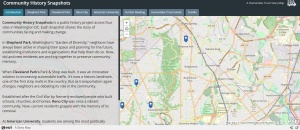
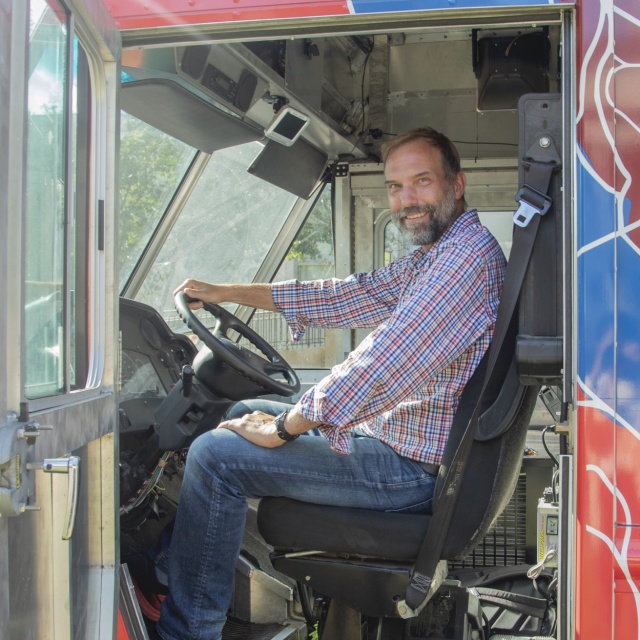
Dan Kerr
When he dreamed of being a truck driver as a child, Kerr never envisioned himself driving the Humanities Truck. But who knew how much fun that could be? Working alongside other visionaries at American University, Kerr, an associate professor of history at AU, spearheaded and now directs the Humanities Truck Project. He is an active community and oral historian committed to the democratization of knowledge production. Since his earliest work with the Cleveland Homeless History Project, he has sought out ways to bring the oral histories he has collected back to the communities they originated from. Through community workshops, participants in his projects have collectively reflected upon and interpreted the gathered stories. He is currently working on a project to document the past, present, and future of the Federal City Shelter in Washington, DC.
Whose Downtown? The Past and Future of the Federal City Shelter
Sitting two blocks from the Capitol building, sits one of the nation’s largest homeless shelters, which houses up to 1300 people a night in a World War II era building that was originally constructed by the federal government as part of an alley dwelling clearance policy. The shelter, as well as the building that houses it, have long and storied histories that are intertwined with national urban renewal and homeless assistance polices. Proposals, however, are calling for the demolition of the building for private redevelopment in 2021. The Whose Downtown? project will bring the truck to the shelter, document the experiences of the residents, share these experiences with other residents, and use the truck space as a workshop to reflect on the past and future of the shelter so that the residents can engage more effectively with the planning processes that will dramatically impact their lives. This project will continue through the duration of the grant and will document what could potentially be the last years in this iconic shelter’s existence.
Invisible Hands: Jornaleros/Manos Invisibles: Day Laborers
Invisible Hands: Jornaleros/Manos Invisibles: Day Laborers is a group exhibition of ten day laborers who photographed their own everyday lives as jornaleros using their cell phone cameras. Through their eyes, the day laborers’ goal was to open an invisible yet all too present world to us; to take us through their day, to share their reality, one that for some is hopefully temporary but for others is a whole way of life. Put together, the photos take us from morning to evening and all that happens in between. This exhibit first took place at the Katzen Museum at American University. The Humanitites Truck has made it possible to take the exhibit into the community. First successful stop, the corner of the only Home Depot in DC.
The exhibit was organized by American University Prof. Ludy Grandas and Arturo Griffiths, Executive Director, Trabajadores Unidos of Washington, DC, in collaboration between American University students, faculty and staff, Trabajadores Unidos of Washington, DC. It was sponsored by the Department of World Languages and Cultures, the Studio Art Program, the College or Arts and Sciences, and the DC Commission on the Arts and Humanities, and the Humanities Truck.
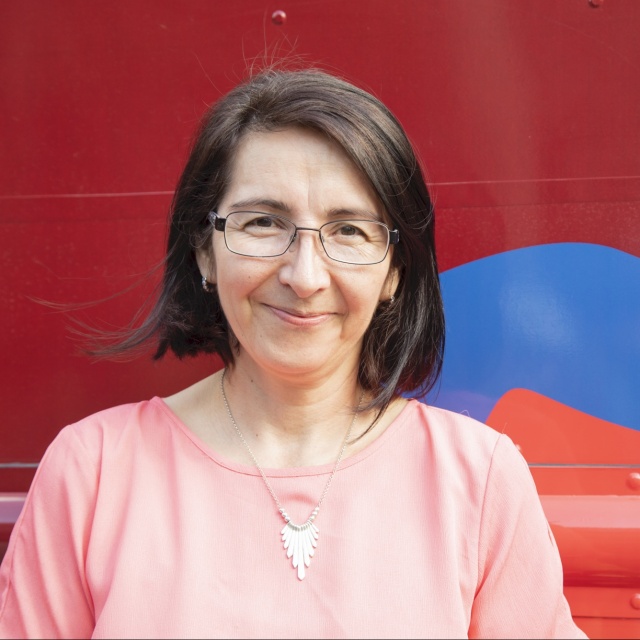
Ludy Grandas
Ludy Grandas is a senior professorial lecturer at the Department of World Languages and Cultures. Her teaching focuses primarily on nation and state formation in Latin America, Studies of Culture in Latin America, the Studies of Culture in Hispanic populations in the US, as well as Spanish Language. Her research interests include labor, immigrant labor, cultural studies as practiced in Latin America. For the last few years she has been collaborating with Trabajadores Unidos de Washington, DC, a non-profit organization whose mission is to empower day laborers, low income workers as well as immigrant workers in DC. She has led two Community Based Learning Courses which connect AU students to these specific populations.

Adrienne Pine
Adrienne Pine is a critical medical anthropologist who—despite a general aversion to cars—once drove a truck from Berkeley to Tegucigalpa. While most of her work has examined the embodied impacts of violent and racist U.S. policy abroad, she has recently shifted her focus dramatically to examine the embodied impacts of violent, racist U.S policy in the DMV. She is delighted to be on the Humanities Truck team.
Historic African River Road Project
The Historic African River Road Project is a collaboration between students and faculty of the AU anthropology department and Montgomery County, MD communities originally founded during the Reconstruction Era by free and formerly-enslaved people of African descent. Begun as a class project aimed at using the tools of ethnography to support the River Road, Scotland and Tobytown communities in their struggles against displacement and the desecration of their cemeteries, it has grown into a collaborative effort to document and celebrate the rich histories of these communities on a larger scale. In 2018, the AU Library Archives opened its Historic African River Road Connections (HARRC) Collection. In 2019, project participants are excited to make use of the Humanities Truck in the interactive, on-site analysis and curation of community documents, artifacts, and oral histories, and in conducting other forms of ethnographic research in preparation for curating the Summer 2019 Katzen Museum Historic African River Road exhibit.

